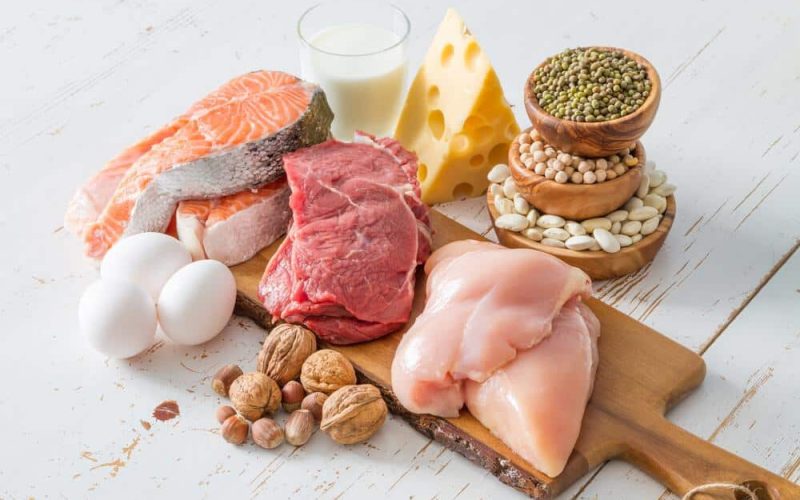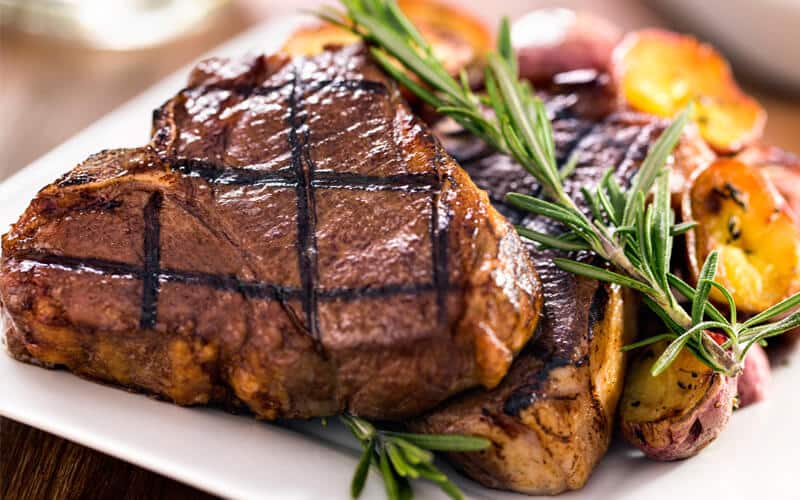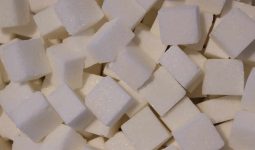You look skinny, do you even eat protein foods at all? You should know by now that protein can help you bulk up, so grab a stake and chew on as much chicken as you can get.
We have heard this and lots of other stuff about protein, but there are some of these assumptions that are far from accurate. Even the smartest person might believe these protein myths because no one ever told them the truth.
Bodybuilders have made protein a really hot topic, and the amount of protein powder and chicken they consume is jaw-dropping.
Now, to set the record straight, check out these nine protein facts and myths that’ll have you make the right decision when it comes to your protein consumption.
1st myth: It is impossible to get all the protein you need from only plants
This is entirely false, but a lot of people have been made to believe it. According to experts plants that are a complete protein.
These plants include grains like quinoa and soybeans which are rich in all the vital amino acids that the human body needs. Complete plant-based protein sources like buckwheat, quinoa, and soybeans are by far healthier than meat.
Vegetarians need to eat a lot of plant-based protein to stay healthy hence they munch on plants like chickpeas, lentils, tofu, and other protein seeds.
If you are wondering whether all your protein needs will be met, it can, if you make sure to consume a variety of plants that are proteinous like hemp, beans, lentils, chia seeds, tempeh, chickpeas, nuts, and nut butter.
It is true that opting to eat plenty of seeds, fruits and vegetables every single day of your life can feel a little too much to take in, but you can decide to supplement your diet with vegan protein powder if you are finding it hard to fit all those plants into your diet.
2nd Myth: I’m not a body builder, so I don’t need to consume as much protein as they do
The above myth is entirely untrue because whether or not you are into weightlifting, the fact that you engage in other forms of exercise makes it vital that you consider more than the average amount of regular protein people who don’t ever consume.
The simple cardiovascular exercises that you engage in still requires that you take in enough protein to help repair inflamed or damaged tissues around your body, support a reasonable blood glucose regulation, and maintain satiety. And as you already know, protein isn’t just for those who workout. Almost every process your body undertakes requires protein. I
n fact, protein is a very vital component of the cells in your body, and it is also essential for the healthy growth of hair nails skin cartilages and muscles. Protein is also crucial to help your body produce hormones, neurotransmitters, and enzymes.
Note also that if you want to have a complete balanced diet, you need not eliminate protein. If you are looking to lose weight, protein can also help, so do not conclude it is only good for building lean muscles.
3rd myth: It is best to eat the bulk of your protein at dinner
This is another false protein myth that needs to be corrected. Because most people tend to consume the heaviest meals in the evening, it is only healthy to see them consuming more of their daily protein at dinner time.
Because dinner time is when you can include beans, chicken, and other protein foods to your meal and settle down to eat without being in a hurry to leave for work. However, it doesn’t mean that protein is only reasonable to be eaten at night time.
Research has shown that if you are looking to build lean muscles, it is best to consume your protein spread throughout the day this is because your body can only use the amount of protein that it needs at any time of the day, and the rest is burnt off.
When you consume an excess quantity of protein in just one meal when your body uses up the volume it wants to use the rest will end up being stored as fat ( you do not want to accumulate fat in your system do you?).
Knowing that it is healthy to consume protein throughout the day is an excuse for you to snack on protein bars and drink up enough protein shakes.
4th myth: Protein powder and supplements can replace food protection entirely
Not every expert agrees with this protein myth even though a lot of people have made a habit of consuming protein powder and bars daily instead of protein foods.
Although protein powders and supplements are also considered food they lack some of the basic fibers and nutrients that real food based proteins have.
Even though a lot of protein powder products in the Market are fortified with various vitamins and minerals, it is vital that make you make your protein shakes; you combine them with some fruits, seeds, and nuts to make it a complete balanced diet.
The powder cannot provide you with the fibers your body requires to aid digestion and powders can only offer a limited amount of micronutrients which are only beneficial for the short term. You see why you still need to indulge in protein-rich foods?
5th myth: Chicken breast is more proteinous than soybeans
This myth has finally been busted! While meat is generally believed to be higher in protein content than every other food, soybeans and chicken breasts contain an equal amount of protein.
In fact, soybeans contain a slightly higher quantity of protein at 36g per 100g versus chicken breasts that contain 31g per 10g.
In other words, if you stock up on some soybean products, you can easily cut down on the meat consumption and not lose anything when it comes to the quantity and quality of your protein intake.
6th myth: Everyone can eat the same amount of protein
Say what? Hell no! You do know everyone is different physically and have varying goals when it comes to body weight.
If you are looking to bulk on, I may be trying to shed some body fat, and the next person may be looking only to trim down the size of their tummy so all three of us cannot feed on an equal amount of protein.
You should know the right amount of protein to consume; it is vital that you consider your age, level of activity, total body mass, personal health goals, and current health status.
If you are older, you are required to consume less protein, and if you exercise you are required to consume more protein than the fellow who lives a more sedentary lifestyle.
Based on the reference nutrient intake (RNI) in the United Kingdom, adults are advised to eat a total of 0.75g of protein per kg they weigh. Which means if you weight ten stones(65kg) you need to eat about 48.75g of protein on a daily basis.
If you are trying to shed some weight and you have to exercise as many as three to five times weekly, then you have to up your protein intake to about 1 gram of protein per kilo of body weight.
Also, for people who are active and train for up to one hour daily trying to build up some muscles you need to increase your protein intake to about 1.2 to 1.7 grams per kilogram of body weight.
Whether you are super active or minimally active, you need to eat enough protein because it helps in repairing your body tissues muscles as you strive to reach your fitness goals and they also keep you healthy generally.
7th myth: Eating protein makes you big and bulky
This is another protein myth that experts have claimed is false and they have good enough reasons to back up their claims.
Men have a different hormonal profile to women, therefore growing muscles for almost everyone is a combination of consistent exercising and the consumption of the right amount of protein.
You shouldn’t reduce your protein intake simply because feel that consuming protein will make you bigger than you want to be.
Proteins help your body fight against a number of diseases and help to strengthen your bones and teeth, so do not avoid them for any reason. Although protein is sold as bodybuilding product, it doesn’t stay in your muscles which is proof that it isn’t there to bulk you up as you eat.
You can only build muscles when you combine high resistance workout with your protein consumption, and it is even harder for women to build up muscles than men even when they work out due to their hormonal profile.
8th myth: All protein bars are made equal
When you meet a vegetarian, you just think that they eat the healthiest of foods but trust me when I say they eat junk like the rest of us.
When you see protein bars, you think they are whole proteins, but some of them are filled with added sugar and calories, so it is vital that you check the wrappers to find out what they contain before you pay for them.
9th myth: You need to take some protein after every workout
This is the only assumption that has earned the truth status so far. You need to take in some protect after every exercise session because it is what will help you build up lean muscles and fix worn out tissues and also fuel your body.
However, getting the right quantity of protein throughout the day is still the most critical factor. However, research has shown that the timing of your protein, snack or shake consumption doesn’t really matter, you can decide to take your protein before or after you workout.








Great post man, keep it up! 🙂